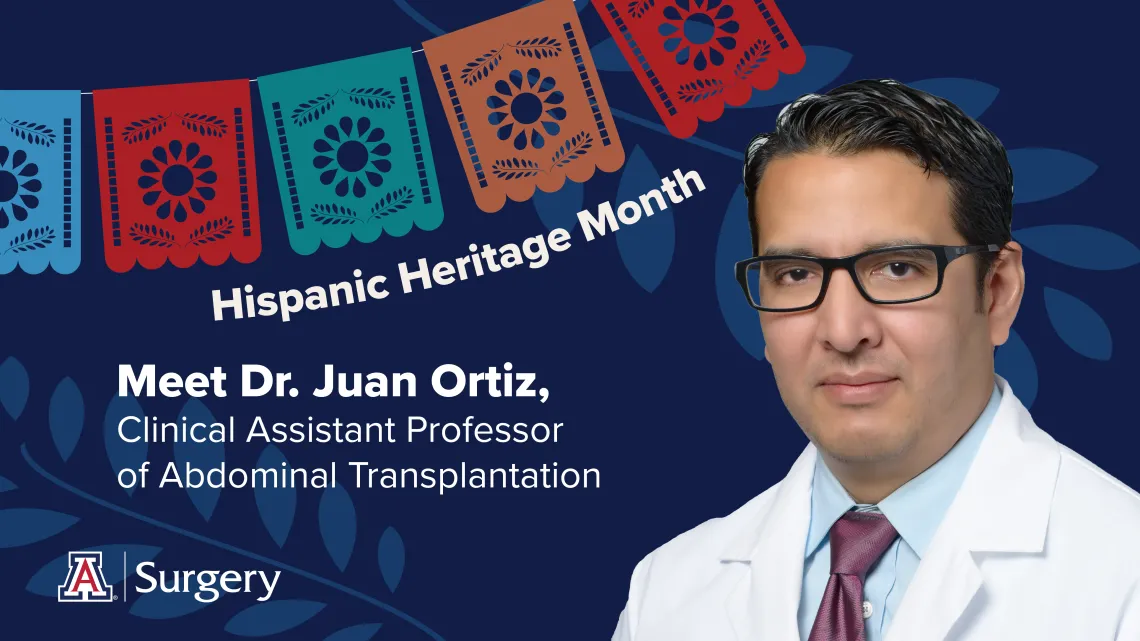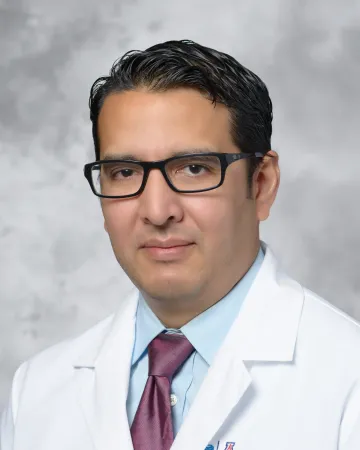Hispanic Heritage Month Spotlight: Dr. Juan Ortiz


Juan Ortiz, MD, is a clinical assistant professor in the Department of Surgery's Division of Abdominal Transplantation. Prior to coming to the University of Arizona, Dr. Ortiz completed his fellowship in transplant surgery and hepatobiliary surgery at Northwestern University. Before entering the medical field, Dr. Ortiz completed a Bachelor of Arts in economics from the University of Washington. Hailing from Guadalajara, Jalisco, Mexico, Dr. Ortiz speaks fluent English and Spanish. He believes that every patient should be treated as a whole unique individual with the utmost care, compassion, and attention to detail regardless of social, racial, or economic status.
What do you do as a transplant surgeon?
My job involves putting new organs in patients whose organs have failed for a big variety of reason. I concentrate mainly in liver, kidney, and pancreas transplants. So, I perform surgeries to place new organs in patients with liver cirrhosis, kidney failure, and type 1 or type 2 diabetics.
Why did you decide to go into your specialty?
To me personally, transplant was one of the only specialties within surgery where I saw that I was able to make a big impact on my patients lives. Getting someone off dialysis and back to their life is something that brings great gratitude. Being able to bring someone close to death back to their families after a liver transplant is a uniquely humbling experience. Transplant is also a TEAM specialty, and you work with multiple people from different specialties to care for patients, so the care of the transplant is not just on the surgeon.
"Being of Hispanic heritage comes with me everywhere I go. I make it part of my practice in transplant to increase access to my community in any way I can."
What is your favorite part of being a transplant surgeon?
My favorite part of being a transplant surgeon is seeing patients get back to their lives, back to their families. We see them at their worst, and we get to see them get better at every step. This is definitely my favorite part of the job.
How does being of Hispanic heritage inform your practice, research, and teaching?
Being of Hispanic heritage comes with me everywhere I go. Unfortunately, there are a lot of Hispanic patients that have either no access or very limited access to health care and transplant services. Our community also suffers from the majority of diseases that put patients on transplant lists ie diabetes, hypertension, and fatty liver disease. I make it part of my practice in transplant to increase access to my community in any way I can, from teaching residents and students about the challenges that our patients have in comparison to other populations, to working with our Division Chief Dr. Daniel Campos and the department leadership to continue growing and expanded our newly created Hispanic Transplant Program.

